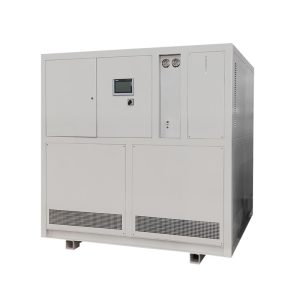small lab chiller
Small Lab Chillers: Compact Cooling Solutions for Laboratories
Small lab chillers are specialized temperature control units that provide reliable cooling in laboratory settings. These chillers are favored for their compact size, precision, and adaptability to various laboratory applications.

Key Features of Small Lab Chillers
Compact Size: Small lab chillers have a small footprint, making them suitable for space-constrained environments.
Precision Temperature Control: They can maintain temperatures with high accuracy, often within a fraction of a degree.
Portability: Many models are lightweight and equipped with wheels for easy movement between different lab stations.
Applications of Small Lab Chillers
Small lab chillers serve a variety of applications, such as:
Chemical Reactions: Cooling reactions to specific temperatures for controlled outcomes.
Sample Preservation: Maintaining the integrity of temperature-sensitive samples.
Scientific Experiments: Providing stable temperature conditions for experimental procedures.
Selecting the Right Small Lab Chiller
When choosing a small lab chiller, consider the following factors:

Cooling Capacity: Ensure the chiller can meet the cooling demands of your application.
Temperature Range: Verify the chiller’s ability to reach the low temperatures required for your processes.
Fluid Compatibility: Confirm that the chiller is compatible with the coolant or medium used in your lab.
Maintenance and Safety
Proper maintenance of small lab chillers is essential for their longevity and performance. This includes regular cleaning of the chiller and its components, checking for leaks, and ensuring the coolant is free from contaminants. Safety should be a priority; always follow the manufacturer’s guidelines for operation and maintenance.
Environmental Considerations
Small lab chillers can contribute to a lab’s green initiatives by efficiently managing energy consumption and using environmentally friendly coolants.

Conclusion
Small lab chillers offer a practical and efficient cooling solution for a variety of laboratory applications. By understanding their key features, applications, and the factors involved in their selection and maintenance, users can ensure optimal performance and reliability in their lab’s temperature control needs.
This article provides a comprehensive guide to small lab chillers, discussing their features, applications, and the considerations for their selection and maintenance. It emphasizes the importance of choosing the right chiller for specific laboratory requirements and highlights the advancements in cooling technology that have made these systems more accessible and efficient for scientific research and analysis.
Related recommendations
400 ton air cooled chiller
648400 Ton Air-Cooled Chiller: Large-Scale Cooling Solutions for Industrial Applications A 400-ton air-cooled chiller is a significant piece of HVAC equipment capable of managing substantial therm...
View detailshot water chiller system
816A hot water chiller system is a versatile component of the Heating, Ventilation, and Air Conditioning (HVAC) industry, designed to maintain optimal temperatures in various environments. These syst...
View detailsethylene glycol cooling system
673Ethylene Glycol Cooling Systems: Versatility in Temperature Regulation Ethylene glycol cooling systems are engineered to maintain optimal temperatures across a spectrum of applications. These s...
View detailsliquid chillers portable units
310Portable liquid chiller units have emerged as a practical and flexible solution for various cooling needs. Unlike their larger, stationary counterparts, these compact chillers offer the convenienc...
View details
 LNEYA Chiller
LNEYA Chiller






HelloPlease log in